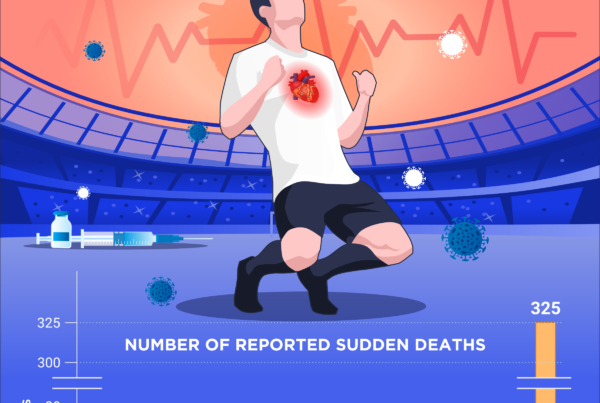
Many people are familiar with the MAF 180 Formula as a way to increase fat burning, improve health, and get faster by training slower. For some individuals, reducing the training heart rate is a hard pill to swallow. By lowering the maximum aerobic heart rate by 10 beats, as indicated in the 180-Formula, the workout slows even more, further frustrating some people. The common complaint is: “I can’t believe how slow I am going!” But give yourself time. Be patient.
Many people of all abilities, including athletes, coaches, and healthcare professionals, have frequently asked me for further clarification of the 180-Formula. But the math is actually quite straightforward, with the Formula containing this caveat: If you are taking any regular medication, subtract 10. Not only is this relevant to prescription and over-the-counter drugs that modify your heart rate during exercise, it applies to any medication. The result is a further lowering of the aerobic training heart rate, slowing the intensity of the workout.
There are good reasons for this recommendation. First, some medications slow the heartbeat. This results in false information about how hard the body is working. In other words, you may workout harder but still have a low heart rate—artificially reduced by medication.
A common example is a group of drugs called beta-blockers, prescribed for patients with heart problems and high blood pressure. This drug reduces both the resting and exercise heart rate, although not always by the same amount. In some cases, a person can workout much harder without the heart rate elevating even into the aerobic zone. In this case, exercising at 125 beats per minute, for example, may be the same as 155 without the medication—so if your max aerobic heart rate is 140, you can easily be overtraining at 125. In fact, some people are unable to attain their max aerobic heart rate while on a beta-blocker.
In this situation, where medication significantly reduces the heart rate, the best suggestion is to work with a cardiologist or other healthcare professional familiar with exercise physiology who can help further individualize a drug’s optimal dose, and your exercise program.
Anti-arrhythmic drugs, calcium channel blockers, and other medications can sometimes reduce exercise heart rate as well. If you’re taking any prescription or over-the-counter drug, you should know whether it affects the heart rate.
Some drugs raise the heart rate. These include thyroid medication, Ritalin and other amphetamines, and even caffeine, which is found in certain cold remedies, pain relievers, and, of course, coffee, tea, and some colas. These drugs will often cause higher exercise heart rates, forcing you to slow down to maintain your maximum aerobic heart rate. This means that by following your heart rate you may have to reduce your exercise intensity. But don’t increase your max aerobic heart rate because of this—there’s another very important factor to consider.
A second reason to subtract 10 beats in the 180-Formula for a person on any regular medication has to do with overall health. The fact that a healthcare professional has prescribed a drug or recommended an over-the-counter one means there’s a health problem. In addition, there are the drug’s potential side effects.
While people often think many prescription and over-the-counter drugs are perfectly safe, or that the health problems associated with their needs are quite innocuous this is absolutely not the case most of the time. So being more conservative during exercise is important to prevent problems of excessive stress or overtraining from your workouts. There’s still a wide range of intensity below the maximum aerobic heart rate that will provide significant benefits. In addition, this will help with optimal development of the aerobic system often to the point where your doctor may reduce a drug’s dosage, or decide the medication is no longer necessary.
For competitive athletes, progress may be a bit slower, but they’ll still get faster at the same heart rate and improve their performances.
Even though many medications don’t directly affect the heart rate, the impact on health can adversely affect muscles, metabolism, and other systems of the body that promote health and fitness. An example includes some of the cholesterol-lowering drugs called statins, including Mevacor, Lipator and Altocor. These can affect muscle function, sometimes leading to exercise-related injuries. By making the 10-beat adjustment in heart rate, the risk of muscle problems and potential injuries may be reduced.
Another example is aspirin and other NSAIDs, which can interfere with proper recovery after exercise. By working out at a lower heart rate, the stress on the physical body will be reduced along with better recovery.
Even for a woman who is taking birth control pills or hormone replacement therapy, these medications have potential side effects that can adversely affect exercise activity. In this case, the levels of some B vitamins can be lowered, affecting liver function, energy systems, lactate production, and other important body functions necessary for optimal health and fitness.
For those performing higher intensity workouts, the potential problems of medications, and the reasons for prescribing them, can be amplified with an increased risk of complications. Consider that increased physical exertion itself is a risk factor that can trigger a heart attack. While lower heart rate workouts generally don’t do this, and in fact, protect you from a heart attack or stroke, anaerobic exercise with its associated higher heart rates can increase the short-term risk of death from a heart attack. So does the high intensity associated with athletic competition—it doesn’t have to be a 26.2-mile marathon, 5K run, or two-hour bike ride.
A note on caffeine:
I don’t recommend making further adjustments in the 180-Formula for those drinking a large cup (or two) of coffee before working out. Clearly, this can affect the heart rate. But like eating a bowl of junk-food cereal or a bagel, which can adversely affect endurance performance by reducing fat burning, I choose not to adjust the training heart rate for these habits.








